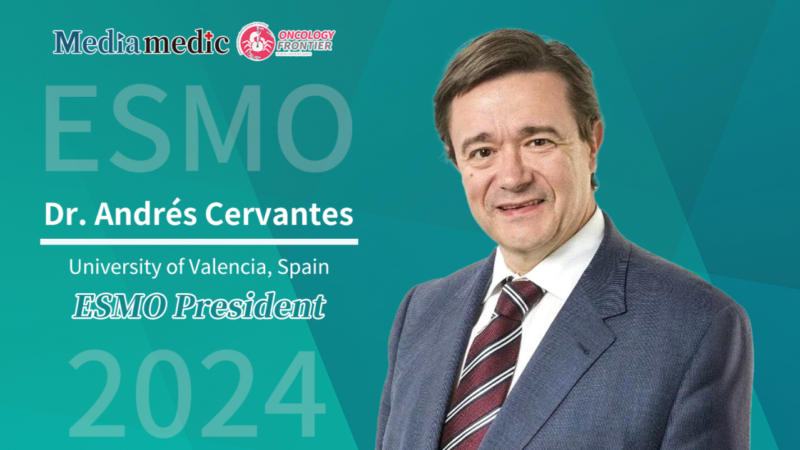MediaMedic shared a post on LinkedIn about MediaMedic article, adding:
“ESMO 2024: Precision Oncology and the Future of Molecular Prevention.
At ESMO 2024, President Andres Cervantes highlights a new frontier for oncology—Molecular Prevention. With rapid technological advancements, oncologists are now tasked with not only treating but also preventing cancer at its earliest stages. ESMO is pioneering education and guidance in this evolving field, redefining the role of oncologists in the era of Precision Oncology.
Stay tuned for more updates from ESMO 2024.”

Quoting MediaMedic’s article:
”ESMO 2024: President Dr. Andrés Cervantes: From Precision Oncology to Molecular Prevention—A New Role for Our Profession?
With the rapid advancement of science and technology, there is growing hope that more cancers can be intercepted at their earliest stages. The European Society for Medical Oncology (ESMO) is deeply exploring the field of prevention to ensure that oncologists are educated and guided in this evolving area.
Cancer prevention and early detection through screening is not only an ideal personal choice but also an area where the oncology community must take action. It is projected that between 2022 and 2050, the global cancer burden will increase by 77%, with over 35 million new cases diagnosed (Globocan data). This surge is driven by aging populations, demographic growth, and changes in exposure to risk factors as societies undergo socio-economic development. Reducing this curve is critical to safeguarding our healthcare systems, supporting the oncology workforce, and ensuring that patients continue to receive high-quality care.
Key lifestyle factors such as tobacco use, alcohol consumption, and obesity, alongside environmental drivers like air pollution, significantly contribute to cancer development. These factors can and should be addressed to reduce the projected numbers. Of course, not all cancers can or will be prevented, but with the emergence of innovative technologies, more cancers could be diagnosed at earlier stages in the future. Innovations such as multi-cancer blood tests, biomarker tests using blood or saliva samples, artificial intelligence (AI) applied to medical imaging, and even wearable devices and apps that calculate personal cancer risk scores could ultimately contribute to secondary prevention and reduce cancer mortality.
As our understanding of the cellular processes involved in cancer development and progression advances, we increasingly see that, just as different molecular characteristics of tumors now guide our treatment choices, the different mechanisms of carcinogenesis—driven by environmental or genetic factors—should also steer us toward more personalized ‘precision prevention.’ For example, evidence suggests that prostate cancer screening for Black men, who face higher risks and mortality rates, should begin 10 years earlier than current U.S. standards (NEJM Evid. 2024;3: evida2300289). We also know that the human papillomavirus (HPV) vaccine is not equally effective for all women as a cancer prevention tool, due to the differing prevalence of high-risk HPV strains not covered by current vaccines across various socio-economic backgrounds (Cancer Epidemiol Biomarkers Prev. 2021;30:1895–1903).
Combining emerging molecular knowledge and risk stratification characteristics with innovations in cancer screening technology offers the potential to better identify high-risk individuals. This holds great promise for more effective and cost-efficient prevention strategies. Therefore, it is vital to clearly define our objectives and determine the best methods to obtain reliable data for clinical application. Through the newly established ESMO Cancer Prevention and Early Detection Working Group, chaired by Dr. Suzette Delaloge, ESMO is committed to a deep and comprehensive understanding of this dynamic field, contributing to a harmonious framework of approaches, and sharing this knowledge with oncology professionals worldwide.
As the field matures, ESMO will continue to support oncologists in staying updated with advancements and making the best use of these developments in clinical practice—through guideline publication, educational programs for healthcare professionals globally, and showcasing and discussing emerging data. Over the next five days, the 2024 ESMO Congress will provide a platform for critical scientific findings, expanding our treatment arsenal while also offering educational sessions and expert discussions to explore the promising future of cancer prevention. Read further.”
Source: MediaMedic/LinkedIn


